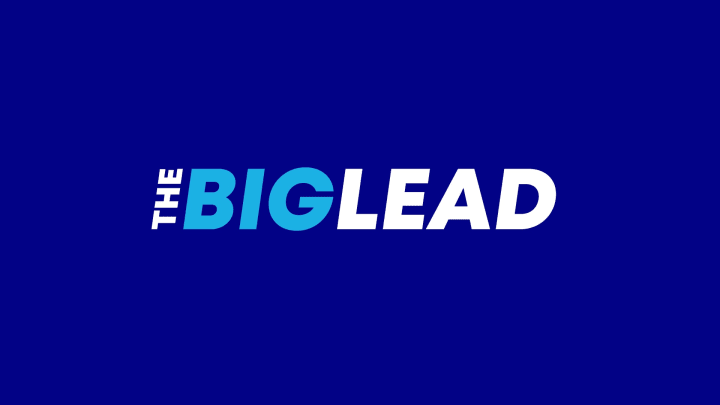Dan Le Batard Had the Power to Be Insubordinate, At Least Once

Dan Le Batard has made national news for his comments that began with Nick Wright’s tweet about the racism of the “Send her back” chants at a Trump rally in North Carolina, and branched off into his belief that ESPN handles this whole dynamic in a cowardly manner, using people like Steve Kerr or Gregg Popovich as “meat shields” to discuss the topic while otherwise shying away. It was the most overt challenge from anyone at ESPN yet to president Jimmy Pitaro, who has been emphatic about network talents avoiding this type of conversation on-air or on social platforms, and in fairness something that his predecessor John Skipper had been desperately trying to curb since Jemele Hill’s tweet about white supremacy.
The power dynamics between Le Batard and Pitaro are fascinating here. Le Batard had such a close relationship with Skipper that he broke down crying on-air when the former President resigned, but nonetheless signed a lucrative, long-term extension with ESPN last June shortly after Pitaro became the boss. He could have in the neighborhood of $10 million left on his contract, his radio show with Jon ‘Stugotz’ Weiner and the shipping container of producers has fortified in the 10 am ET time slot after some initial concern in replacing Colin Cowherd, and the podcast is a digital dynamo. That umbrella is ever-growing to include a bevy of other contributors.
His show Highly Questionable with his father does good TV ratings in the afternoon, and he’s the most prominent on-air Hispanic person at ESPN by a considerable margin as according to the Census that demographic represents 18.1% of the United States population. He has the personal brand and the talent to thrive on any number of platforms outside of ESPN; for one example, he had talks with SiriusXM last year before opting to extend with ESPN. Le Batard is the son of Cuban refugees, and he values the freedom of speech above all else.
But you can also easily see why the powers that be at ESPN wished he would just bite his tongue and ignore Trump with his public voice. The network is of the distinct belief that its aggregate audience is tuning in there in active, conscious avoidance of the topic. On the other hand, when you talk about what you’re passionate about for a living and inflammatory anti-immigrant rhetoric boils up like this, it can eat you up inside if you don’t say anything.
I might be butchering this analogy a little bit because I heard it secondhand, but a year or two ago I was told by a friend that former ESPN and current Athletic writer Ethan Strauss went on a Slate podcast and said something along the lines of likening political talk on ESPN to if you go to McDonald’s and order a hamburger but they serve you sushi. You might even like sushi, but if it’s what you wanted to eat at that moment you would’ve gone to a Japanese restaurant for lunch instead.
Pitaro has made no bones about this: If you feel that you cannot bear to abstain from discussing Donald Trump, you have to work somewhere else. It’s not the worst thing in the world. Jemele Hill got bought out and she has new deals with The Atlantic and Spotify where she can talk about what she’s most interested in, and a production company whose projects I assume we’ll start hearing about in the coming months.
ESPN has declined to comment to everyone who has asked about this, and Andrew Marchand has reported that ESPN emphasized internally to its talents that its policy on avoiding political discussions remains unchanged.
Of people in and out of ESPN I’ve spoken to, there are multiple schools of thought on what should happen to Le Batard here. One goes that avoiding punishing him is a slippery slope that would embolden other politically-minded opinionists to weigh in on the inevitable next derogatory remarks out of Trumpland. The other is that Le Batard was right in what he said and that disciplining him would be a dangerous encroachment against ESPN and Disney’s inclusivity ethos. In a shocking surprise, there aren’t many people in the middle.
The fact of the matter is that whether Le Batard is formally disciplined or not, he has accumulated the individual power to get up on his soapbox and say what he did at least once. People forget that Jemele Hill was actually not suspended for her white supremacy tweet, but for quote-tweeting a list of Dallas Cowboys sponsors who could be boycotted. The question is if this is recurring. This won’t be the last time a Trump situation like this one arises. What happens then?